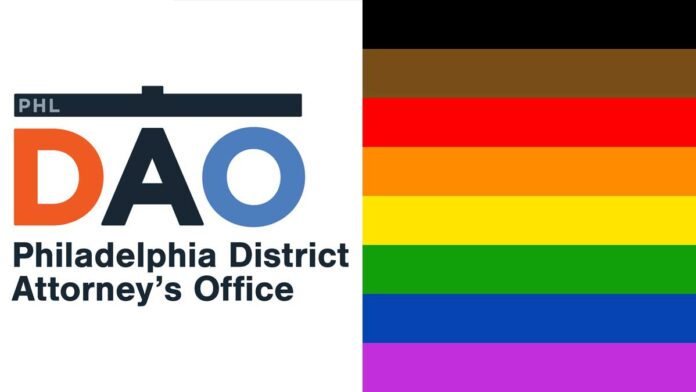The newly-created LGBTQ+ advisory committee for the Philadelphia District Attorney’s Office held its first meeting earlier this month. However, the names of committee members remain unavailable to the public.
On Dec. 6, the 18-member committee met at the Philadelphia District Attorney’s Office in Center City, with DA Larry Krasner also in attendance. Committee members who couldn’t attend in person were able to attend via Zoom.
Additional information about the meeting was unavailable, as of press time.
The formation of the committee was announced during a March 2021 press conference attended by Krasner.
“We are going to be incredibly intersectional to make sure that everyone is a part of this,” said the office’s LGBTQ+ Liaison and Victim/Witness Coordinator Kelly Burkhardt, at the press conference.
On Dec. 7, PGN requested the names of committee members, but was informed by DA spokesperson Jane Roh that the names wouldn’t be publicly available.
“[A]t this time, at the request of several members we are not publicizing the names of people who are serving on this committee, which is inclusive of LGBTQI+ persons who have had prior involvement with a criminal legal system that too frequently punishes targeted and vulnerable people for engaging in survival work and for using illegal substances,” Roh said, in a Dec. 10 email. “The purpose of the committee is to support the LGBTQI+ community’s goals of being treated with the dignity and respect they deserve from all public institutions, including the criminal legal system. We hope to have more to say in the future about the work of the Liaison Committee.”
On Dec. 16, PGN filed a state Right-to-Know Law request with the DA’s office for the names of committee members — whether it be their legal name or the name they commonly use. If a name is redacted from the record provided to PGN, the paper requested that a legal reason be cited for the redaction.
Melissa B. Melewsky, media law counsel for the Pennsylvania NewsMedia Association, expressed support for transparency regarding the new committee. “The names of committee members are presumptively public under the Right-to-Know Law,” Melewsky said in a Dec. 16 email. “In most circumstances, the names should be public so the community knows who is involved in — and assisting with — public policy decisions. Public policy decisions require transparency. And that’s equally true when private individuals step into public policy roles. The policies are no less important or applicable because they were generated with input from private citizens. And transparency should be the goal.”
Melewsky also commended the DA’s office for creating the committee. “It’s encouraging to see the DA’s office using this kind of committee and seeking input directly from the impacted community,” Melewsky added. “And this important work demands more transparency, not less. If there are specific, individualized reasons that a particular member’s identity must be confidential, the RTKL allows the DA’s office to pursue that option. But that would be an exception to the general requirement of disclosure. The general rule requires public access unless there’s a strong need for limited access.”
Paula Knudsen Burke, local legal initiative attorney at the Reporters Committee for Freedom of the Press, echoed Melewsky’s sentiments. “Citizens serving on government advisory boards are helping to shape public policy,” Burke said, in an email. “Our state’s open meeting and records laws mandate that the public has access to what transpires at government agency meetings, as well as at meetings of the committees that render advice to those bodies. This includes the membership of the committee members.”
One of the issues the DA’s committee is expected to address is the Nizah Morris case. Morris was a trans woman of color who was found with a fatal head wound in 2002, shortly after receiving a courtesy ride by Philadelphia police. The 19th anniversary of her death will be on Dec. 24.
The DA’s office claims to be investigating the case. Yet it has repeatedly stated in open court that it doesn’t have any 911 audio recordings relating to the incident. PGN has extensive recordings which the DA’s office never has requested. The recordings show Morris sustained her head injury within 12 minutes of being placed inside a police vehicle. The recordings also show the Morris incident began in the 6th police district where the courtesy ride took place. But the Morris incident is officially recorded as beginning in the 9th district and there’s no mention of the courtesy ride in paperwork handed in to supervisors by responding officers.
As of presstime, the DA’s office hadn’t responded to PGN’s open-records request for the committee members’ names.
